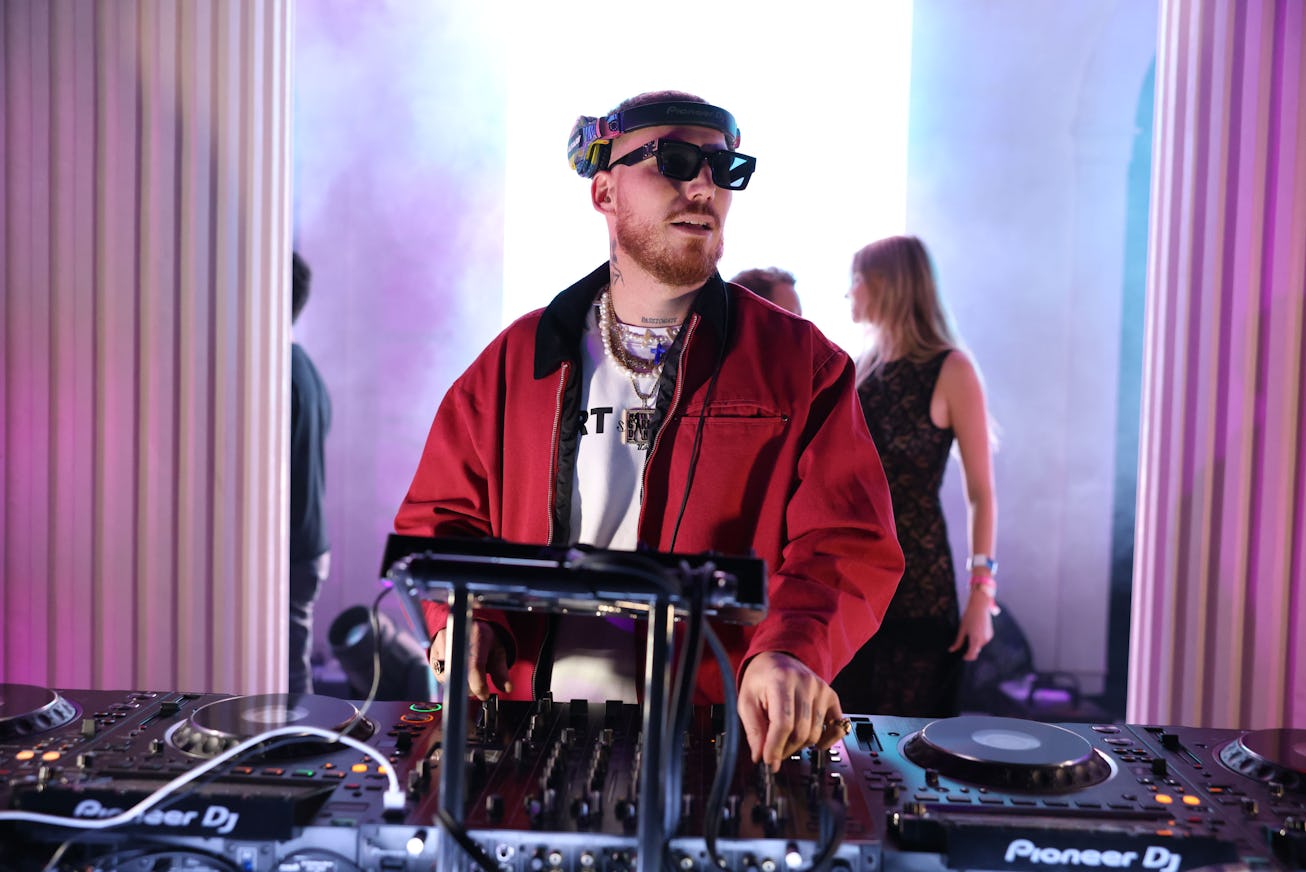
Entertainment
Hugel’s Huge Year
The DJ reflects on his 2024 — and how he’s never felt freer as an artist.
When Hugel (né Florent Hugel) was a kid in Marseille, he didn’t have much, but he did have dreams of one day coming to Miami.
“Miami is my favorite city in the world,” the DJ tells NYLON, sitting in the green room of a lavish South Beach mansion before his set at the magazine’s Art Basel party earlier in December. “When I was 14, I was playing Grand Theft Auto: Vice City a little too much, then I saw Scarface, and I said, ‘That’s it — one day I’ll have to be an immigrant to this country.’” His friend comes in, cueing Hugel to make his way to the booth, where his unique blend of Arabic rhythms, Mediterranean sounds, island vocals, and classic club music samples transform the mood on the dance floor from “polite” to “throbbing.”
You might already be familiar with Hugel’s unique sonic blend, thanks to his earlier viral hits “Morenita” and “Marianela (Que Pasa),” each of which boasts more than 100 million streams on Spotify. In 2024, he found continued success with his remix of Latin Mafia’s “Patadas de Ahogado,” which was made on a Miami balcony, and just a month after releasing a Diplo collaboration called “Forever,” he dropped an updated version of his summer hit “I Adore You” with fresh vocals by J. Balvin and Ellie Goulding.
But for all his high-profile partnerships and major festival bookings, the 37-year-old one-time McDonald’s employee, insurance salesman, and real estate agent has hustled every step of the way. “When you have nothing to lose, you just try things,” he says. “People who care about what others think are people who are comfortable. If you’re not comfortable, you really don’t give a f*ck. I was borderline not polite, right? That’s what I used to be. Now I’m at Art Basel. It’s a different life, so I have to be polite.”
His mom’s love of soul, funk, and disco was his first musical education. From there, he immersed himself in hip-hop coming over from America, the sounds of summers spent with his grandfather in the south of Spain, and the Arabic, Corsican, Italian, and Spanish music that swamped the Marseille streets. When he was 7 years old, he’d pop tapes into his boombox and record mixes from the radio that he’d then take to school to trade for pain au chocolat. Those transactions taught him that his taste had value — and that his entrepreneurial spirit could finance future musical pursuits.
At 12, the profits from a low-level scam — “I was selling pens like it was a lottery thing for school, and because I was a little kid and cute, everybody was buying from me” — funded his first music software, and soon, he was making beats for his friends to rap over. At 16, he stumbled into a nightclub. “I saw all the girls dancing and said, ‘Yo, that sh*t is sexy. It’s different, what is it?’” His friends told him it was “house music,” and from then on, he was dedicated to a new sound.
After getting kicked out of his parents’ home at 17, he lurked on public email chains on MSN Messenger and tracked down the local college-party promoters, then spammed their DMs claiming to be the best DJ in the city. It worked, and he used his popularity to land bigger gigs at bigger clubs until he finally earned enough to quit his day job. His big break came when he was 26. He flew to the annual electronic-music conference Amsterdam Dance Event to track down Stefan Dabruck, who represented Robin Schulz — Hugel considered Schulz to be the biggest DJ in the world at the time. He walked up to Dabruck in the street, handed him his demo tape, and refused to take “no” for an answer. Dabruck signed Hugel on the spot, and 10 years later, they still work together.
It wasn’t a fairy tale just yet. His requests to get songs played on the radio were met with, in his own words, “‘Nah, we play David Guetta, get the f*ck outta here.’” Likewise, most labels would ask him to tone down his sound to be more commercial. But after a lifetime of standing up for himself, he says that, this year, he’s finally reached a level of independence. “I can now make a hit without having any middleman,” he says of his command of social media. “I don’t need them anymore, they need me. That’s the difference … I do whatever the f*ck I want, I post it, it goes viral, and they have to play it. They have no choice.”
I do whatever the f*ck I want, I post it, it goes viral, and they have to play it.
For Hugel, on the other hand, the possibilities are endless. He recently used Art Basel to launch his latest project: Tafari World, a tongue-in-cheek streetwear brand (one of the T-shirts reads “ART s’il vous plaît”) created in collaboration with his friend Tyler Adibi. Hugel says he sees it as a way to tap back into his hip-hop roots because all the rappers he admired growing up had fashion labels. So why shouldn’t he?
That “why not me” mindset, Hugel says, is the most powerful weapon a man can have — one that’s key to his self-made autonomy. “Freedom is everything, you know?” he says. “When you can be finally free with your art, with everything, that, for me, is when you can say, ‘I’m rich.’”